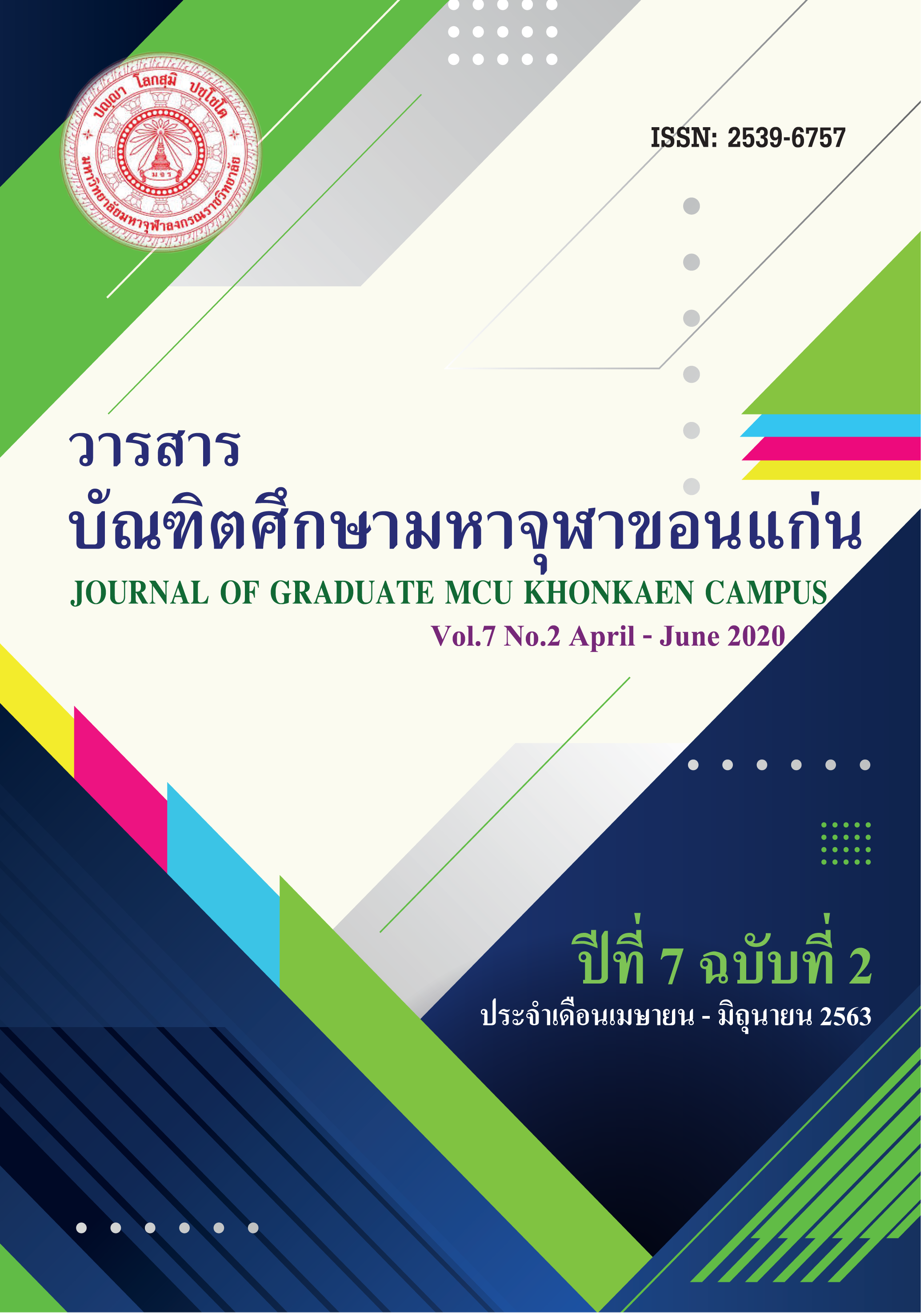AN ANALYSIS OF SOCIAL PHILOSOPHY INTHE VINAYA TIPITAKA
Main Article Content
Abstract
The aims of this research were: 1) to study the Vinaya Tipitaka; 2) to study the social philosophy; 3) to analyze the social philosophy in the Vinaya Tipitaka. This study was carried out by means of the documentary research to collect the data from primary and secondary sources before being analyzed by the descriptive method based on an inductive reasoning method.
The research results were as follows:
1) The Vinaya Tipitaka is the rules, regulations and practices of monkswhich the Buddha first regulatedin the twelfth year of his Buddhahood. The root cause for regulating the disciplines came from BhikkhuSudina, who had taken sexual intercourse with his ex-wife.The purpose of discipline commandments was for a good orderliness among the Sangha and to be a guideline for liberation and well-being for the Sangha.
2) The social philosophy includes social structure theory, social problems, behavior expression of coexistence of people in societywhich many philosophers have proposed concepts, theories, practices, regulations, rights, duties, freedom, equality and justice for coexistence in society.
3) The social philosophy in the Vinaya Tipitaka includes: 1) the rights according to the disciplinesthat the monks who are ordained according to the disciplinary rules have the right to perform the monastic activities; 2) duties according to the dhamma disciplines that the monks have to study the dhammasand spread them; 3) freedom according to the discipline means that monks are free to practice dhammas in order to achieve liberation from suffering; 4) equality in accordance with the dhamma discipline means that monks have moral equality and equal opinions and equality in receiving Kathina robe; 5) justice based onthe discipline is that judgment and punishment by using the dhamma principles as a basis for judgment.
Article Details
References
พระเทพดิลก. (2543). พระธรรมวินัย. กรุงเทพมหานคร : โรงพิมพ์มหากุฎราชวิทยาลัย.
พระพรหมคุณาภรณ์ (ป.อ.ปยุตฺโต). (2548).“วิสัยธรรม เพื่อเบิกนำวิสัยทัศน์”. กรุงเทพมหานคร :
บริษัทพิมพ์สวย จำกัด.
_________ . (2555). “พุทธรรม ฉบับปรับขยาย” พิมพ์ครั้งที่ 32, กรุงเทพมหานคร : ผลิธัมม์.
ภัทรพรสิริกาญจน, “ประโยชน์นิยมในความเรียงว่าด้วยเสรีภาพของจอห์นสจวร์ตมิลล์”, วารสารราชบัณฑิตยสถาน ปีที่ ๓๘ ฉบับที่ ๒ เม.ย. – มิ.ย. ๒๕๕๖.
วันสุวรรณพงษ์,“ศึกษาเปรียบเทียบหลักการพิจารณาการลงโทษผู้กระทำผิดทางวินัยตามพระพุทธบัญญัติและความผิดทางอาญาตามประมวลกฎหมายอาญา”วิทยานิพนธ์พุทธศาสตรดุษฎีบัณฑิต” บัณฑิตวิทยาลัย : มหาวิทยาลัยมหาจุฬาลงกรณราชวิทยาลัย, ๒๕๕๘
ความเสมอภาคทางสังคม. จากวิกิพีเดีย สารานุกรมเสรี, https://th.wikipedia.org/wiki/สืบค้นเมื่อ
16 ธันวาคม 2562.

